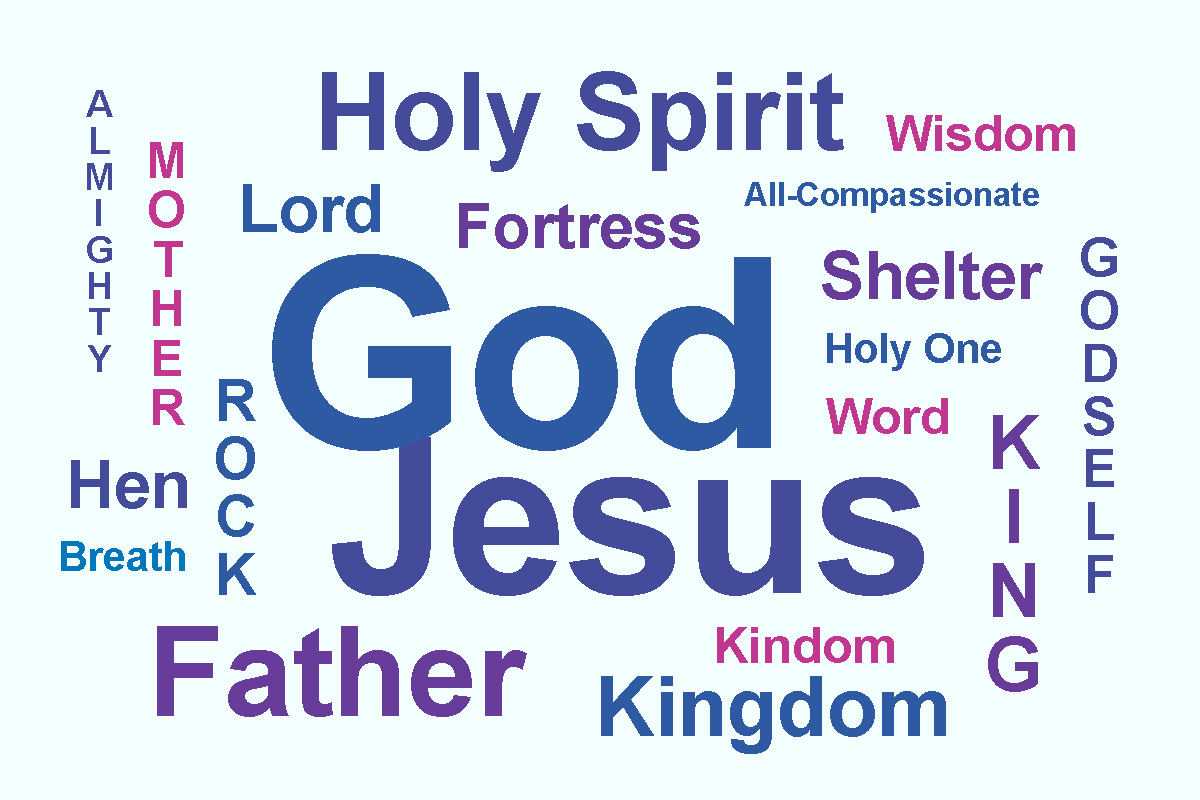
Since the early 1980s, United Methodists have had at least one statement in the Book of Resolutions encouraging the use of inclusive or expansive language for God that reflects the full range of the biblical witness to the nature of God and language for human beings that reflects the diversity and equality of the sexes.
Inclusive language was the earlier term used to describe this. Beginning in the 1980s, United Methodists urged avoiding male-gendered pronouns for human beings, except when referring specifically to males, and moving away from the “generic” terms “man” and “mankind” toward non-gendered terms such as human and humankind. There were efforts to avoid use of any male-gendered pronouns or titles for God unless referring to Jesus Christ, who was biologically male. Male names and titles for God (such as Father, Lord, and King), as well as male pronouns for God, were to be avoided when referring to God and not specifically talking about Jesus. During these years, terms such as God’s or Godself when referring to God in place of pronouns (his or himself) become common. We also see the beginnings of the use of the term “kin-dom” to replace “kingdom,” as in “kin-dom of God” in some instances.
By the 1990s United Methodists with several other Christian denominations reaffirmed use of gender-inclusive language for human beings and called for the use of expansive language for God. The idea of expansive language validates the continued use of historical titles and pronouns for God (Father, Lord, King) as used in scripture and in the history of the church, while at the same time encouraging the fullest range of language for God found in Scripture and Christian tradition to be drawn upon widely as well. This includes feminine, non-gendered, or inanimate imagery for God (such as Rock or Fortress). The call for expansive language for God is intended to ensure there is neither domination by male-only images and pronouns for God nor excision or avoidance of these images and pronouns in general.
Two official United Methodist statements address the use of language for God and other people.
One is Resolution 8011, “Biblical Language.” It sets forth the most basic commitments to the use of expansive language for humans and for God in light of the range of images for God present in Scripture and Christian tradition.
The other is Resolution 3442, “Every Barrier Down: Toward Full Embrace of All Women in Church and Society.” This resolution recognizes that there appears to be some backsliding in United Methodist commitment to the principles of inclusive and expansive language. It notes that in more recent years the use of inclusive and expansive language has been on the wane and in some cases has even been attacked within The United Methodist Church. It calls on the General Commission on the Status and Role of Women to provide new curriculum that addresses appropriate use of language for God and other people as a way to help remind and reinforce previous and ongoing United Methodist commitments not only relating to the use of language, but to the full equality of women and girls in The United Methodist Church. That curriculum, “God of the Bible” is available for free download.
United Methodists thus continue to affirm our commitments to the use of inclusive and expansive language for God and for human beings, just as we have for over five decades.



